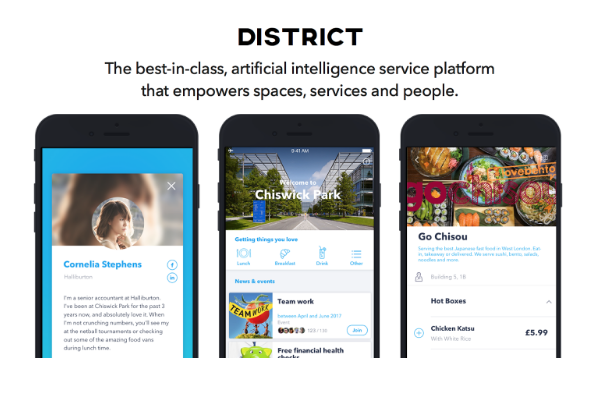Commercial real estate (CRE) is on the verge of a metamorphosis.
Landlords are re-evaluating traditional leasing models as they start to address the changes in the way people work and respond to the profound growth in coworking of recent years.
Although coworking still represents less than 1% of the world’s office space(1), the rise of companies like WeWork, valued at $20 billion(2), is indicative of the rapid change the office market is undergoing.
Will Landlords step up to the ever increasing threat of coworking spaces and the growing demands of tenants?
Currently more than one third of the workforce is disengaged(3). By 2020, more than 50% of the workforce will have been born between 1980 and 2000(4) i.e. “millennials” and by 2025 that number will have risen to 75%. Understanding the needs and desires of this new, mobile first (69% of digital media time is spent on mobile(5)) workforce will be key to succeeding in the CRE markets of the future.
The following are some helpful statistics to better understand the future workforce.
- 78% prioritise office quality and services when choosing an employer(6).
- 90% value a healthy work life balance(7).
- 72% say they would like to increase their spending on experiences rather than physical things(8).
- 80% say wellness programmes are crucial to attracting and retaining them(9).
- 82% say they would like their office to feel more like a community(10)
The Landlord of the future needs to attract and retain the best occupiers, who in turn need to attract and retain the best employees. To do so, they need to fulfill the values of future workforces: 1) services catered to the individual 2) work / life balance and experiences not materialism 3) wellbeing and communities.
In London new developments represent only 1.8% of office space each year(11). Given this low proportion, how can Landlords not only build new developments that focus on the needs of future workforces but also upgrade existing, fully let buildings to improve the user experience and create relationships to retain future customers?
At District Technologies, we have created a proprietary, plug and play platform that upgrades traditional real estate assets (1.0 – core and shell) to service led optimised assets (3.0 – with a user focused, service led operating system). District achieves this through a platform and mobile app that is designed around the users and connects them with what they love. We empower spaces, services and people in a very scaleable way. District improves the workplace for employees by connecting them with each other, fostering business opportunities for their companies, connecting them with what is happening in and around their buildings and connecting them with specialised services optimised for their daily needs.
Since launching in January 2017, District is now supporting some of the largest Landlords in London including Blackstone, GIC, LaSalle and Trilogy.
Sources:
1.HOK’s WorkPlace. (2016, Nov). Coworking a Corporate Real Estate Perspective. http://workplaceinsight.net/wp-content/uploads/2016/10/HOK-Coworking-Report-A-CRE-Perspective-UK.pdf
2.HOK’s WorkPlace. (2016, Nov). Coworking a Corporate Real Estate Perspective. http://workplaceinsight.net/wp-content/uploads/2016/10/HOK-Coworking-Report-A-CRE-Perspective-UK.pdf
3.Steelcase (2017) Global Employee Engagement Workplace Report. https://info.steelcase.com/global-employee-engagement-workplace-comparison#introduction
4.CBRE (2016) Global Millennials Live Work Play Report. https://www.cbre.com/about/live-work-play-2016
5.Com Score (2017) Cross Platform Future in Focus. http://www.comscore.com/Insights/Presentations-and-Whitepapers/2017/2017-US-Cross-Platform-Future-in-Focus
6.CBRE (2016) Global Millennials Live Work Play Report.
https://www.cbre.com/about/live-work-play-2016
7.PwC (2011) Millennials At Work. https://www.pwc.de/de/prozessoptimierung/assets/millennials-at-work-2011.pdf
8.Eventbrite (2017) Millennials Research. https://eventbrite-s3.s3.amazonaws.com/marketing/Millennials_Research/Gen_PR_Final.pdf
9.CBRE (2017) Wellness in the Workplace Report. http://www.cbre.eu/emea_en/IMGS_STYLES/docs/CBRE101211%20Wellness%20in%20the%20Workplace_FINAL.PDF
10.CMS (2017) Occupier Research. https://cms.law/en/GBR/Publication/Real-Estate-Report-2017
11.Cushman & Wakefield Data
Photo: Getty Images andresr




